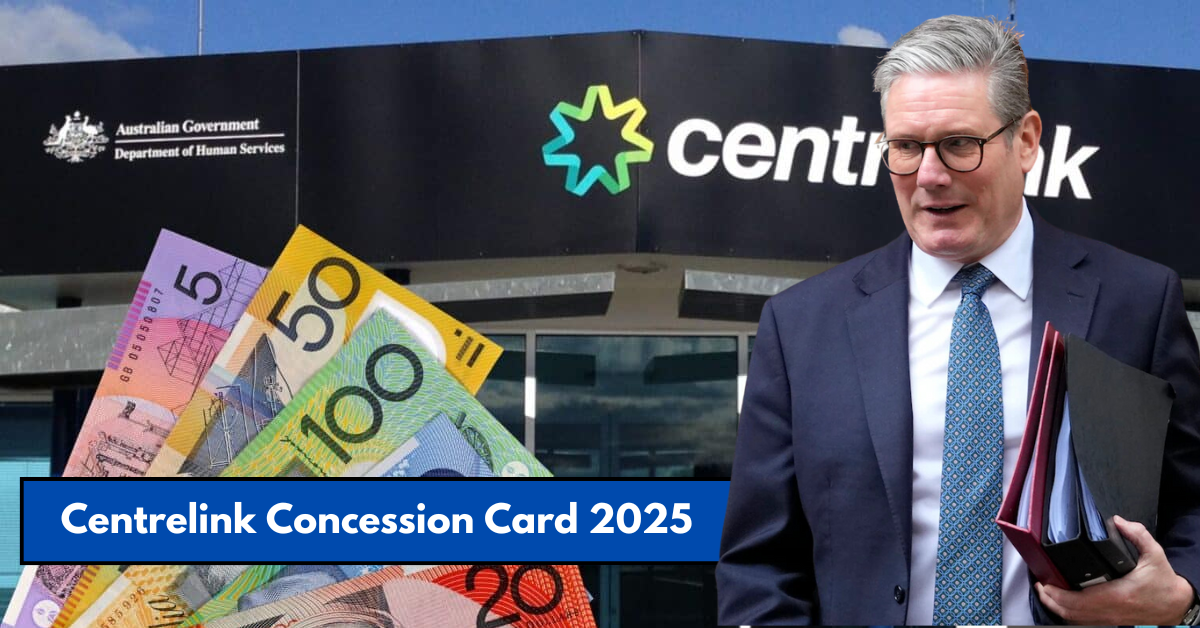The Centrelink Concession Card is an essential support tool for Australians, offering financial relief on healthcare, utilities, transport, and more. In 2024, this card remains a crucial resource for eligible individuals and families, helping to manage daily living costs. Whether you’re looking to reduce expenses or support someone in need, this guide will walk you through the benefits, eligibility criteria, and application process for the Centrelink Concession Card.
What is the Centrelink Concession Card?
The Centrelink Concession Card is issued by the Australian Government to provide financial relief to eligible citizens. It offers discounts on essential services such as medications, healthcare, transport, and utility bills. For many Australians, especially those experiencing financial hardship, this card is a lifeline.
Centrelink Concession Card 2025
| Topic | Details |
|---|---|
| Eligibility Criteria | Varies by card type, including income limits, age, and dependency status. |
| Benefits | Discounts on healthcare, medicines, public transport, utilities, and more. |
| Types of Cards | Health Care Card, Pensioner Concession Card, Commonwealth Seniors Health Card. |
| How to Apply | Apply through Centrelink online or in person. |
| Income Limits (2024) | Ranges based on card type and household size. Check Centrelink’s website. |
| State-Specific Concessions | Some states offer additional benefits, such as utility bill discounts and transport rebates. |
| Recent Changes | In 2025, the income thresholds for the Commonwealth Seniors Health Card were updated. |
Types of Centrelink Concession Cards
There are several types of Centrelink Concession Cards, each catering to different groups:
- Health Care Card (HCC)
- Eligibility: Low-income earners or recipients of Centrelink payments like JobSeeker or Parenting Payment.
- Benefits: Discounts on medications, health services, and utilities in some states.
- Pensioner Concession Card (PCC)
- Eligibility: Age Pension, Disability Support Pension, or Carer Payment recipients.
- Benefits: Reduced transport fares, utility discounts, and cultural concessions.
- Commonwealth Seniors Health Card (CSHC)
- Eligibility: Seniors aged 65+ (or 60 for Indigenous Australians) with income below $57,761 (single) or $92,416 (couples).
- Benefits: Cheaper PBS medications, reduced healthcare costs, and state-based concessions.
- Low-Income Health Care Card
- Eligibility: Individuals with low incomes who do not receive other Centrelink payments.
- Benefits: Discounts on medicines and state-based services.
- Student Concession Card
- Eligibility: Full-time students in approved courses.
- Benefits: Reduced public transport fares and student discounts.
Key Benefits of the Centrelink Concession Card
- Healthcare Savings: Reduced costs for prescription medications under the Pharmaceutical Benefits Scheme (PBS).
- Transport Discounts: Cheaper fares on public transport across many regions.
- Utility Rebates: Discounts on electricity, gas, and water bills in some states.
- Additional Concessions: Reduced costs for recreational activities, cultural events, and local council rates.
Eligibility Criteria
Eligibility depends on the type of card. Common factors include:
- Income Limits: Specific thresholds based on your household size and income.
- Age Requirements: Applicable for certain cards like the CSHC.
- Dependency Status: Relevant for those with dependents or in caregiving roles.
To confirm your eligibility, visit the Centrelink website or contact a Centrelink service center.
State-Specific Concessions
Apart from national benefits, some states offer additional perks:
- New South Wales (NSW):
- Energy bill rebates for pensioners and low-income earners.
- Free or discounted public transport for seniors and people with disabilities.
- Victoria:
- Free travel for seniors during off-peak hours.
- Utility relief grants for eligible households.
- Queensland:
- Concessions on healthcare services.
- Discounts on gas and electricity bills for low-income households.
How to Apply for a Centrelink Concession Card
Step 1: Gather Your Documents Prepare proof of identity (passport or driver’s license), income (payslips or tax returns), and residency (utility bills).
Step 2: Apply Online
- Log in to your myGov account linked to Centrelink.
- Navigate to the Services Australia section.
- Select the concession card option, complete the form, and upload the required documents.
Step 3: Visit a Centrelink Service Centre Alternatively, apply in person at a Centrelink office for assistance.
Step 4: Wait for Approval Once approved, your card will arrive by mail.
Tips to Maximize Your Benefits
- Combine your card benefits with state-based concessions for greater savings.
- Renew your card on time via the myGov portal to avoid disruptions.
- Use your card at participating healthcare providers, retailers, and public services.
FAQs About the Centrelink Concession Card
- Can I hold multiple cards? No, you can only hold one type of Centrelink Concession Card at a time.
- What if my income changes? Update your details with Centrelink, as changes may affect your eligibility.
- Can I use my card overseas? No, the card is only valid within Australia.
Real-Life Impact
Case Study: Sarah, a single mother, saved $500 annually using her Health Care Card. By accessing discounts on medications, transport, and utilities, she significantly reduced her family’s financial strain.
Conclusion
The Centrelink Concession Card is a powerful resource for Australians in need. By understanding the benefits, eligibility criteria, and application process, you can take full advantage of the support available in 2024. Don’t wait—apply today and start saving!
This article has been carefully fact-checked by our editorial team to ensure accuracy and eliminate any misleading information. We are committed to maintaining the highest standards of integrity in our content.
Premlata is a seasoned finance writer with a keen eye for unraveling complex global financial systems. From government benefits to energy rebates and recruitment trends, she empowers readers with actionable insights and clarity. When she’s not crafting impactful articles, you can find her sharing her expertise on LinkedIn or connecting via email at biswaspremlata@gmail.com.
